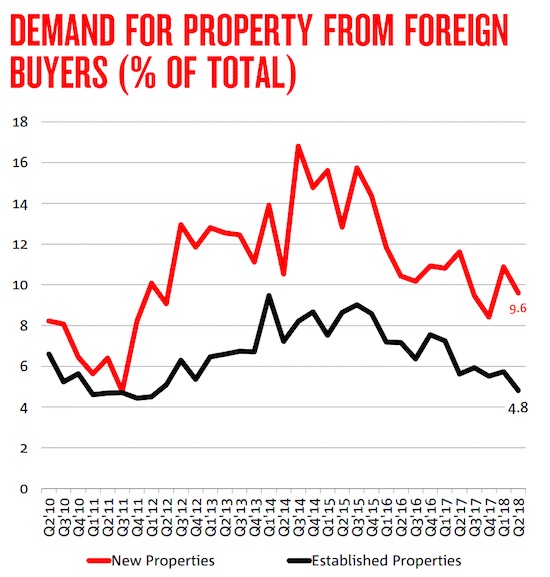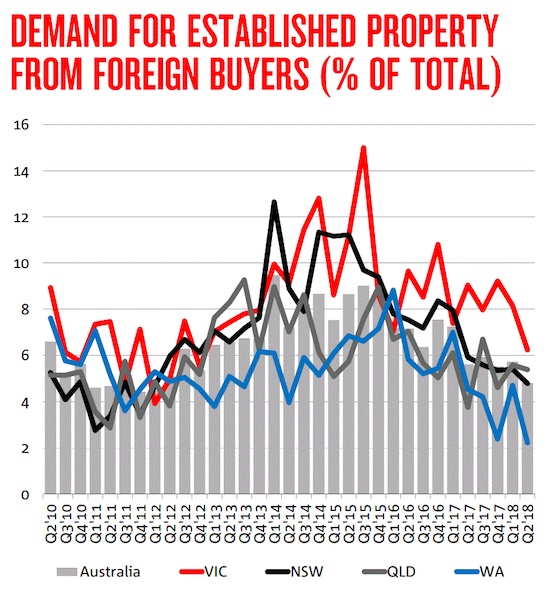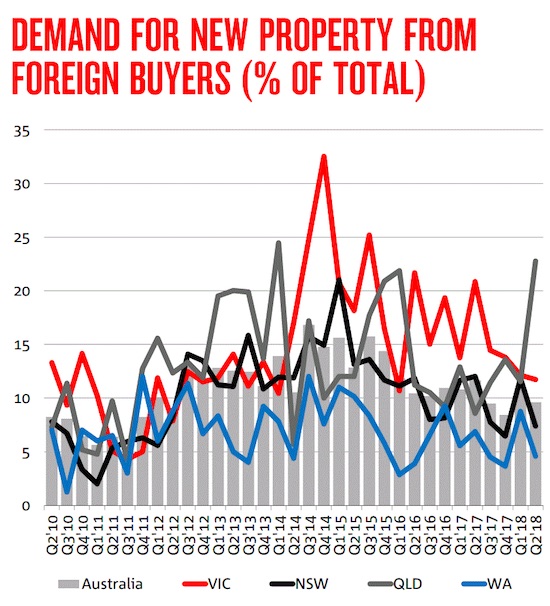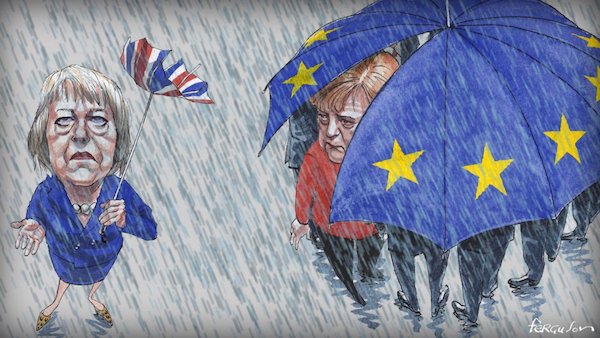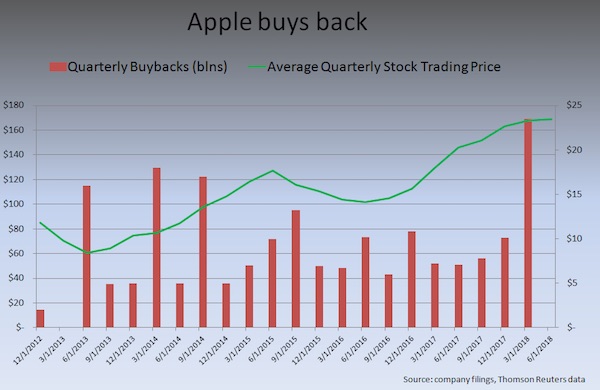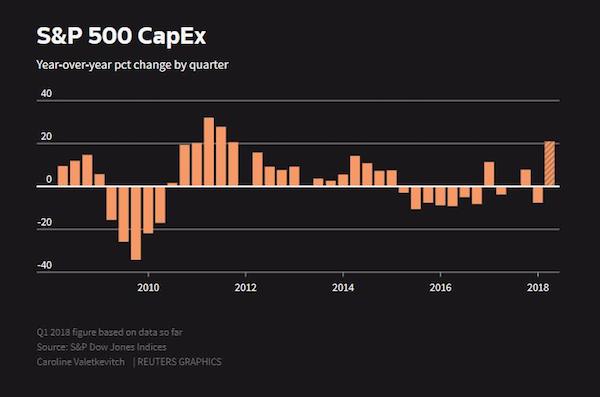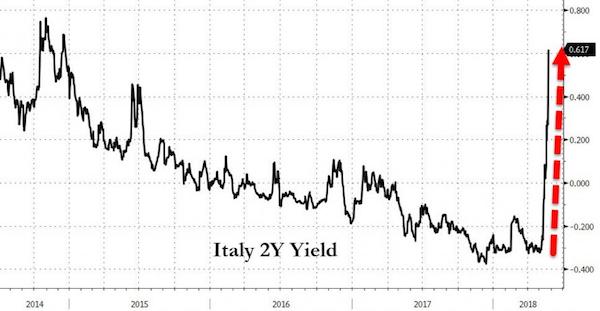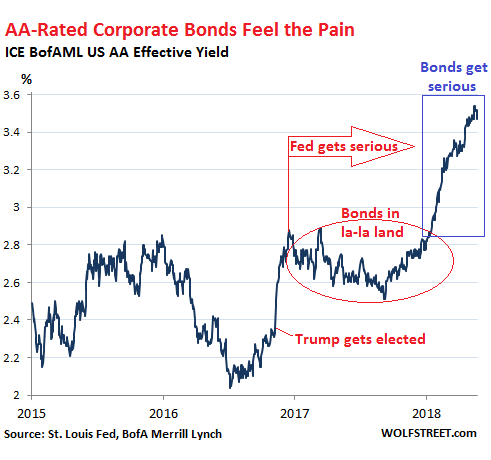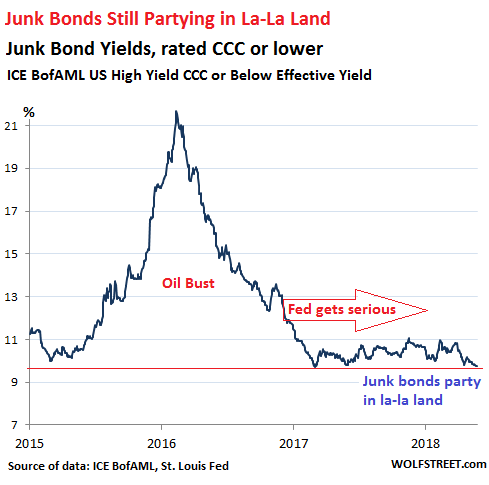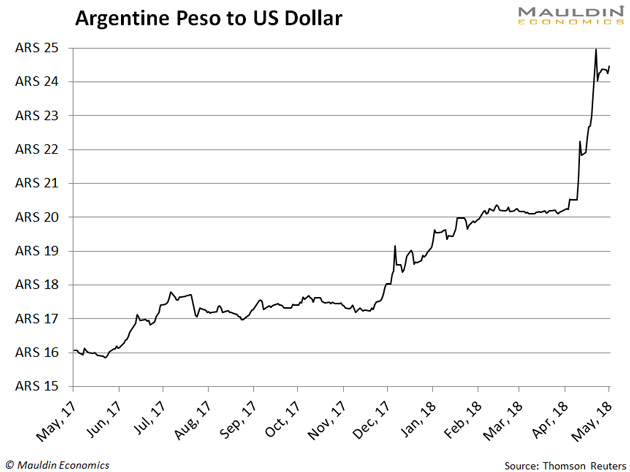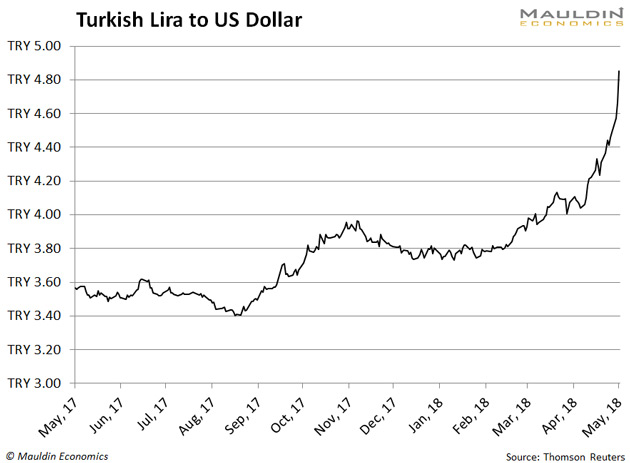
René Magritte The voice of blood 1948

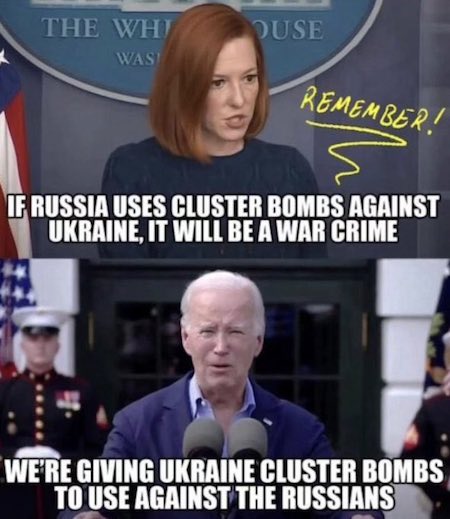

RFK Camus
People tend to feel sorry for Sisyphus, because the gods condemned him with the job of rolling a stone up a hill everyday. Every night the stone would roll back down again and mangle him, and every morning he had to get up and do it all over again. But in Albert Camus’ version of… pic.twitter.com/OfSGyY6VC7
— Robert F. Kennedy Jr (@RobertKennedyJr) July 12, 2023

RFK Wuhan
https://twitter.com/i/status/1678816812119519254

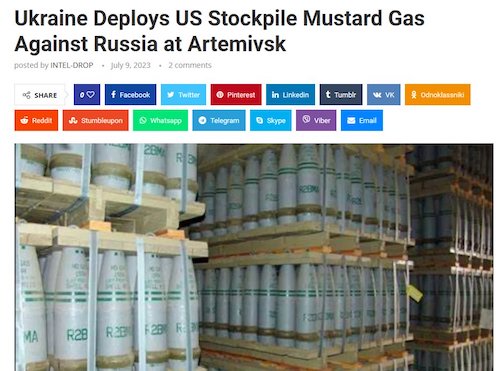

Kiev Nov 2013
In November 2013, days before the US backed Maidan protests started which eventually toppled the democratically elected Ukrainian Govt this official warned the Ukrainian Parliament that the US Govt is preparing a civil war in Ukraine. The rest is history. https://t.co/T3UzxMJswA
— Kim Dotcom (@KimDotcom) July 10, 2023

EP
https://twitter.com/i/status/1678806221254426633

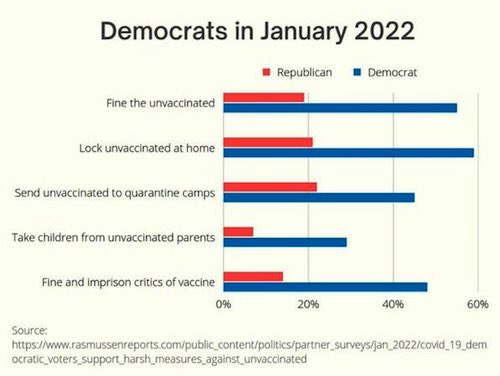


“..It does not have the right to encourage escalation of a war where there will be no winners.”
• Ceasefire and Peace Talks Should Be Focus of NATO Summit (CD)
The start of NATO’s annual summit in Vilnius, Lithuania on Tuesday has been dominated by talk of maintaining the flow of weapons to Ukraine and potentially expanding the Western military alliance to include the war-ravaged nation as its conflict with invading Russian forces drags on. But anti-war campaigners argued that approach is a recipe for a prolonged and possibly larger military conflict, one that could ultimately involve nuclear weapons. Lindsey German, a founding member and convenor of the United Kingdom-based Stop the War Coalition, wrote Monday ahead of the two-day summit that “a ceasefire and peace talks are the only means to end this bloody spiral,” warning a primary focus on weaponry and NATO expansion would signal that “Western powers are preparing for an even greater war.”
The alternative to serious peace negotiations, German wrote, is that the war “grinds on, with battles such as Bakhmut increasingly resembling those of the First World War. And that further ‘red lines’ are crossed—more cruise missiles, more cluster bombs. And then what? Tactical nuclear weapons?” “While Ukraine has every right to defend itself from the invasion and war with Russia, it does not have the right to demand weapons which even the British government has said it will not send,” German added, referring to cluster munitions—weapons that the U.S. is preparing to send Ukraine. “It does not have the right to encourage escalation of a war where there will be no winners.” “A ceasefire and peace talks are the only means to end this bloody spiral.”
NATO leaders gathered in Lithuania for the 2023 summit are reportedly expected to issue a statement pledging to “extend an invitation” to Ukraine to join the military alliance once “allies agree and conditions are met,” offering no specific timeline. U.S. President Joe Biden endorsed the draft communique on Tuesday. But Ukrainian President Volodymyr Zelenskyy, who is in attendance at the NATO summit, criticized the available details of the document, saying it “seems there is no readiness neither to invite Ukraine to NATO nor to make it a member of the alliance.”
Ukraine’s push to join NATO was recently backed by dozens of “foreign policy experts,” many of whom work for organizations that receive funding from weapons companies and industry lobbyists. Eli Clifton of Responsible Statecraft reported that 21 of the 46 signatories to a new open letter supporting Ukraine’s NATO bid “are associated with institutions with financial ties to the weapons industry, an industry that presumably stands to benefit from the policy recommendations laid out in a letter that had a particular focus on providing more Western weapons to Ukraine, a fact not shared with readers.”

Check out the doc.
• NATO Summit, a Theater of the Absurd (Scott Ritter)
NATO had placed high hopes on the Ukrainian army being able to carry out a counteroffensive against Russia which would achieve discernable results both in terms of territory re-captured and casualties inflicted on the Russian army. The results, however, have been dismal to date — tens of thousands of Ukrainian casualties and thousands of destroyed vehicles while failing to breach even the first line of the Russian defenses. One of the challenges NATO will face in Vilnius is the question of how to recover from this setback. Many NATO countries are starting to exhibit “Ukraine fatigue” as they see their armories stripped bare and their coffers emptied in what, by every measurement, appears to be a losing cause.
The scope and scale of the Ukrainian military defeat is such that the focus of many NATO members appears to be shifting from the unrealistic goal of strategically defeating Russia to a more realistic objective of bringing about a cessation to the conflict that preserves Ukraine as a viable nation state. Ukrainian President Volodymyr Zelensky will attend the NATO summit. However, his demands for NATO membership will not be met — U.S. President Joe Biden himself has weighed in on the matter, saying this would not be possible while Ukraine is at war with Russia. There will be face-saving gestures from NATO, such as the creation of a NATO-Ukraine Council and talk of eventual post-conflict security guarantees.
But the reality is Zelensky’s presence will do Ukraine more harm than good, since it will only accentuate the internal disagreement within NATO on the issue of Ukrainian membership and highlight NATO’s impotence when it comes to doing anything that can meaningfully alter the current trajectory on the battlefield, which is heading toward a strategic defeat for both Ukraine and NATO. The vision of the Madrid summit was that of NATO capitalizing on its strategic victory against Russia to further expand its ranks in Europe (both Finland and Sweden were invited), and to push its influence into the Pacific Ocean. While NATO’s Pacific partners (Australia, New Zealand, Japan and South Korea) have been invited to Vilnius, the hopes that their presence would coincide with the announcement of the opening of a NATO liaison office in Japan have been quashed by France, which objects to an alliance ostensibly focused on North Atlantic security becoming involved in the Pacific.
A Scott Ritter Investigation: Agent Zelensky – Part 1

Twitter thread.
“NATO has lost this war. Biden has lost this war. The lunatic Democrats have lost this war. The uni-party warmongers have lost this war. The EU has lost this war. Ukraine and Zelensky have lost this war.”
• Understanding The NATO Summit (Kim Dotcom)
:The steam for the US proxy war in Ukraine is running out. No commitment is given to Ukraine to obtain NATO membership because the West has come to realize that they can’t win a war against Russia and that peace will only be possible with a neutral Ukraine. Ukraine will never be a member of NATO. Zelenskyy has realized this and is fuming in Vilnius, attacking NATO as disrespectful and calling the conditions absurd. In a moment of clarity he acknowledged what’s really going on: “It seems there is no readiness neither to invite Ukraine to NATO nor to make it a member of the Alliance. This means a window of opportunity is being left to bargain Ukraine’s membership in NATO in negotiations with Russia.”
That’s exactly right. NATO has lost this war. Biden has lost this war. The lunatic Democrats have lost this war. The uni-party warmongers have lost this war. The EU has lost this war. Ukraine and Zelensky have lost this war. Russia wins and rightfully so because everything that happened in Ukraine was a fraud against the Ukrainian people perpetrated by a failing US empire in its final stand against a rising multipolar world. Zelenskyy was never a leader who did what’s best for his people. He will be remembered as a US puppet and actor for foreign interests. 350,000 Ukrainians dead because of him and his puppet masters in the US. He lost $12.7 trillion worth of land and resources to Russia because he did not sign the reasonable peace agreement that Russia had proposed to him.
Instead he fell for empty promises from Biden that the US will support Ukraine until victory. What a fool. The good news is this war may be over soon. The West has lost its appetite to throw more money into the Ukrainian black hole. With the US and EU entering recession they have enough problems at home. Protests and riots will become regular news. Biden wouldn’t stand a chance in the next election. His brain is Swiss cheese and the only alternative for the Democrats is Kennedy. Trump will use the fatal mistake in Ukraine and the dire economic outlook of the US to run a successful campaign. Kennedy, who says all the right things, would be his only real obstacle but the Democrats have messed their country up so royally that Trump seems like the only choice.
The reality is that it doesn’t matter who the next US president is. The insurmountable debt burden combined with de-dollarization in global trade and the rise of BRICS+ are going to send the US into a decade long depression with unseen levels of poverty and violence. Hopefully humanity dodged a bullet and nuclear war is no longer imminent. At least that is my read of the situation right now. But things could flare up again if peace negotiations fail. Russia may be tempted to take Odessa and turn Ukraine into rump state without access to the sea. Russia is holding all the cards. Let’s see how Putin plays them.

Does anyone doubt it will?
• Stoltenberg: No Point in Discussing NATO Membership if Kiev Loses (Sp.)
NATO summit kicked off on Tuesday with the focus on Ukraine possible invitation to the alliance. Secretary General Jens Stoltenberg stressed that the Eastern European state would join the bloc when all member states agree on it and if it meets all the conditions. There is no point in discussing Ukraine’s NATO membership if Kiev does not prevail in the ongoing conflict, Secretary General Jens Stoltenberg said on Tuesday. “I think all allies agree that when a war is going on that’s not the time for making the Ukraine the full member of the alliance,” he stressed. “We also made clear that we will issue an invitation for Ukraine to join NATO when allies agree and conditions are met,” Stoltenberg told a press conference. The secretary general also said that the procedure does not have a specific time frame.
In the final communiqué, NATO members confirmed that they see Ukraine in the alliance in the future. “We fully support Ukraine’s right to choose its own security arrangements,” the document says. “Ukraine’s future is in NATO. We reaffirm the commitment we made at the 2008 Summit in Bucharest that Ukraine will become a member of NATO, and today we recognise that Ukraine’s path to full Euro-Atlantic integration has moved beyond the need for the Membership Action Plan.” Per the NATO communiqué, Ukraine has become increasingly interoperable and politically integrated with the transatlantic alliance and “made substantial progress on its reform path.” The alliance particularly referred to the 1997 Charter on a Distinctive Partnership between NATO and Ukraine and the 2009 Complement, stressing that NATO member states will continue to support and review Ukraine’s “progress on interoperability” and “additional democratic and security sector reforms that are required.”
“NATO Foreign Ministers will regularly assess progress through the adapted Annual National Programme. The Alliance will support Ukraine in making these reforms on its path towards future membership. We will be in a position to extend an invitation to Ukraine to join the Alliance when Allies agree and conditions are met,” the document reads. The bloc has announced the establishment of the NATO-Ukraine Council, a new joint body where NATO member states and Ukraine would sit as “equal members” to advance political dialogue, cooperation and “Ukraine’s Euro-Atlantic aspirations for membership in the alliance.” sStill, the Kiev leadership is seeking admission to NATO in an expedited manner insisting that no other decision will suit Ukraine. On the opening day of the NATO summit in Vilnius, Ukrainian President Volodymyr Zelensky tweeted that it is “absurd” that there is no time frame for inviting Ukraine to the alliance.

“..who needs the bother of formal NATO membership anyway, when you can sneak in through the back door?”
• Should Ukraine Join NATO? Don’t Kid Yourself: It Already Has (Tracey)
As NATO members gather in Lithuania this week with traditional Eastern European fanfare, the chief focus of their deliberations is whether to extend formal membership to Ukraine amid the ongoing war. But the question of whether Ukraine officially joins NATO may have turned into something of a red herring. The truth is Ukraine has already been unofficially incorporated into NATO. As University of Chicago international relations professor Paul Poast, a passionate advocate for NATO’s swift admittance of Ukraine, aptly put it, “NATO has already expanded into the war zone. The allies should just acknowledge that reality.”
A year and a half into the war, it can hardly be denied that NATO forces have gained substantially more than the mere “foothold” in Ukraine that Russian President Vladimir Putin claimed to have launched his invasion of Ukraine to preempt. With the U.S. effectively assuming financial, material, political, strategic, and operational dominion over Ukrainian state warfare, the “foothold” has turned into a heavily-fortified bridgehead. Rockets lobbed at Russian troop positions are ultimately the product of U.S. commanders “controlling every shot,” as Ukrainian officials have occasionally acknowledged. A great deal of American engineering ingenuity is currently being harnessed to pulverize Russians. But as Putin is keenly aware, much of this U.S. and NATO “infrastructure” had been well-established long before any invasion was launched.
For example, exactly two years earlier to the day of Putin’s invasion of Ukraine, on February 24, 2020, the nascent government of Volodmyr Zelensky decreed what was hailed as being Ukraine’s first “comprehensive and systematic” framework to achieve “the full Euro-Atlantic integration of the state” with particular emphasis on “deepening cooperation with NATO.” Almost exactly one year before that, in February 2019, an amendment to the Ukrainian Constitution was passed proclaiming that it was a non-negotiable national priority for Ukraine to pursue “full-fledged” NATO membership at the earliest possible opportunity. By June of 2019, Ukraine received an unusual prize: certification for one of its more seasoned Special Forces units to join the “NATO Response Force,” a specialized “rapid deployment” alliance formation which had been nurtured to life in 2002 by the famously foresighted Donald Rumsfeld. The summer before the invasion started, U.S. and Ukraine special forces convened their largest-ever joint “multinational maritime exercise” in the Black Sea.
Given all of this, who needs the bother of formal NATO membership anyway, when you can sneak in through the back door? Steady incremental assimilation seems like much less of a headache than the customary slog of conventional ratification. And then when the question of full membership does arise, proponents have been handed an argument on a platter: With NATO irreversibly entrenched in Ukraine already, it may as well just dispense with the niceties and go all the way. Oleksii Reznikov, the Ukrainian Defense Minister, is fond of declaring that Ukraine has already “de facto joined the Alliance,” given the massive surge in joint war-planning activity. And no existing alliance member seemed compelled to dispute Reznikov’s characterization—which is perfectly intuitive, given that Ukraine has been furnished over the past year and a half with what is essentially a brand new military, conveniently up to NATO specifications fresh out the box.

“They also accused Beijing of posing “cyber, space, hybrid and other asymmetric threats,” and of engaging in “the malicious use of emerging and disruptive technologies.”
• China Warns Against NATO Expansion Into Asia-Pacific (RT)
The Chinese government has urged NATO not to expand into the Asia-Pacific, warning that it would retaliate to any increased Western military presence in the region after the alliance criticized Beijing during its summit in Lithuania. China’s Mission to the European Union issued a statement on Tuesday in response to NATO’s joint communique, which accused Beijing of pursuing “coercive policies” that “challenge” Western interests. “The China-related content of the communique disregards basic facts, wantonly distorts China’s position and policies, and deliberately discredits China. We firmly oppose and reject this,” the Chinese diplomats said. The statement went on to pledge that Beijing would “safeguard its sovereignty” and oppose “NATO’s eastward expansion into the Asia-Pacific.”
It added that “any actions that damage China’s legitimate rights and interests will be met with a resolute response.” Leaders of the Western military alliance met on Tuesday in the Lithuanian capital, Vilnius, to discuss additional aid to Ukraine, among other matters. They also accused Beijing of posing “cyber, space, hybrid and other asymmetric threats,” and of engaging in “the malicious use of emerging and disruptive technologies.” The Chinese EU mission argued that NATO had failed to reflect on its own responsibilities, and instead “blindly blames other countries, keeps meddling in extraterritorial affairs [and] creates confrontation.”
It added that the bloc’s “ambitions for expansion and hegemony are obvious,” and warned that its status as a “nuclear alliance” would only “further aggravate regional tensions.” The statement comes after Chinese officials warned against the opening of a NATO liaison office in Japan, which would mark the bloc’s first facility in Asia. Though Tokyo indicated it was considering the idea, France has reportedly shot down the project, insisting NATO should remain confined to the North Atlantic. The relations between the US and China have deteriorated significantly in recent years, with countries clashing over Taiwan, global trade, and human rights.
Beijing’s remarks on NATO’s expansion echo previous criticisms from Moscow, which has repeatedly decried the alliance’s gradual expansion eastward in recent decades, and stressed that it considers Western military sites close to its borders a threat to national security. NATO has rejected these claims, insisting that the supply of heavy weapons to Ukraine does not make the alliance a party to the Russia-Ukraine conflict. Kiev had hoped it would be offered a clear path to NATO membership at the Vilnius summit on Tuesday, but was disappointed after the alliance reiterated its prior promises to admit Ukraine as a member at some point in the future, after its armed conflict with Russia is resolved.

“We know that the results of our combat work are carefully monitored and analyzed by foreign intelligence services..”
• Ukraine Lost 26,000 Troops and 3,000 Arms In Counteroffensive – Shoigu (Sp.)
Russian Defense Minister Sergey Shoigu reported about the situation in special military operation zone. Shoigu stressed that Kiev failed to achieve its goals in all directions and lost roughly 26 thousands of troops and 3 thousands of military equipment. “To sum up some results, what did they achieve for this widely promoted and announced, as they called it, strategic counteroffensive. As a result, what have they got approaching the NATO summit? Since June 4, the enemy’s losses have amounted to more than 26,000 military and 3,000 units of various weapons,” Defense Minister stressed. Russian army decimated 21 Ukrainian aircraft, 5 helicopters, over 1200 tanks and other armored vehicles, including 17 Leopards.
He stressed that Kiev continues to unsuccessfully try to break through the defense of the Russian military in different directions, and several waves of attacks have been launched in two days, the minister said. “They are actively fighting, trying to break through our defenses in different directions. Just over the past two days, several waves of attacks have been launched,” the minister said. High-precision strikes of the Russian military against the reserves of the Ukrainian military, including Western equipment, significantly reduce the offensive potential of the enemy, the minister concluded. Shoigu stressed that should the US supply Ukraine with cluster munitions, the Russian Armed Forces would use similar arms against Kiev militants. Sergey Shoigu added that the Russian Armed Forces launched its own counterattack in Krasny Liman direction and advanced 1.5 km.
The intelligence services of the United States and other NATO countries carefully monitor and analyze the results of the combat work of the Russian military, Shoigu stressed. “We know that the results of our combat work are carefully monitored and analyzed by foreign intelligence services, primarily the United States and NATO countries,” Shoigu said. Western intelligence agencies note the high efficiency of the defense of the Russian armed forces, minefields, preemptive airstrikes, as well as the highest resilience of the Russian military and the prompt response measures of commanders, the minister concluded. Russian President Vladimir Putin carefully monitors the situation – he is is briefed twice a day by the command of the Combined Group, as well as individual commanders with detailed reports on the current situation of the special military operation, Shoigu said.

“Joe Biden is needlessly and dangerously leading us into World War three, which would be a nightmare beyond imagination—obliteration!”
• Trump Slams Biden Over Cluster Bombs For Ukraine (RT)
In sending Kiev cluster bombs, the US government is “dragging us further toward World War Three,” former US president Donald Trump warned on Tuesday. President Joe Biden “should be trying to end the war and stop the horrific death and destruction being caused by an incompetent administration,” Trump said in a statement posted on his Truth Social platform. The 45th US president objected to the use of cluster munitions on both humanitarian and strategic grounds, pointing to the fact that unexploded ordnance “will be killing and maiming innocent Ukrainian men, women, and children for decades to come,” long after the war has ended.
Trump also called out Biden’s statement, made in an interview with CNN’s Fareed Zakaria over the weekend, that cluster munitions were being sent because the US has run out of conventional 155mm artillery shells. If true, Trump retorted, this “only further emphasizes the urgency of immediately deescalating this bloody, dangerous, and out of control conflict.” “It certainly means we should not be sending Ukraine our last stockpiles at a time when our own arsenals, according to Crooked Joe Biden, are so perilously diminished,” the former president added, arguing that Biden’s policy of “endless war” in Ukraine has “tremendously weakened” the US.
“Joe Biden is needlessly and dangerously leading us into World War three, which would be a nightmare beyond imagination—obliteration!” Trump said. Trump, who currently leads the polls for the 2024 Republican presidential nomination, vowed to achieve “peace through strength” once he returns to office after the next election. The White House announced last week it would send dual-purpose improved conventional munitions (DPICM) artillery shells to Ukraine. Under Secretary of Defense for Policy Colin Kahl told reporters that the danger the munitions, which are banned in over 100 countries, pose to civilians was diminished because a Russian victory in the conflict would be far worse. He also accused Russia of having used the weapons in Ukraine.
Moscow has denied the US allegations. Defense Minister Sergey Shoigu said on Tuesday that if any US cluster munitions make it to Ukraine, the Russian military will respond with equivalent weapons of its own that are “much more effective” and “diverse.” The US offer of cluster munitions has been condemned by the UN, NATO allies such as the UK, Canada and Spain, as well as members of Biden’s own party in the US House of Representatives. “Either cluster bombs are bad, or they are not bad. You can’t determine the value of a cluster bomb based on who’s being blown up by it,” comedian and podcast host Russell Brand said on Tuesday.

“It is NATO that has pushed the Kiev regime this far..”
• NATO Neck Deep In Ukraine Conflict Due To Weapons Pipeline – Zakharova (TASS)
NATO is deeply involved in the conflict in Ukraine through the bloc’s provision of weapons, mercenaries, funds and intelligence to Ukraine, Russian Foreign Ministry Spokeswoman Maria Zakharova said in an interview with Qatar’s Al Jazeera television. “Do you really think that NATO is not at war with Russia? In fact, it’s NATO that provides all of the weapons, fighters, mercenaries, instructors, advisors and intelligence data to the Kiev regime. NATO is definitely involved in these military activities; there is no doubt about it. It is NATO that has pushed the Kiev regime this far,” she noted.
On February 24, 2022, Russian President Vladimir Putin announced a special military operation based on a request from the heads of the Donbass republics amid escalating tensions in the region, with the authorities in the Donetsk People’s Republic (DPR) and Lugansk People’s Republic (LPR) reporting some of the heaviest Ukrainian shelling up to that time. In response, the West imposed major sanctions on Russia. In addition, Western countries started to provide weapons and military equipment to Kiev, the aggregate value of which is currently estimated in the billions of dollars. However, the Kiev authorities have repeatedly demanded that Ukrainian forces be provided with yet more weapons and more advanced equipment, long-range missiles and aircraft.

Operation Barbarossa.
• Underestimate Russia at Your Own Risk (NC)
In honor of the NATO summit July 11 and 12, this is a comparison of how the Nazi leadership in World War Two and today’s collective West similarly underestimated Russia and overestimated their capabilities. Despite Russia’s overwhelming upper hand in Ukraine, Western officials and media continue to largely pump sunshine and weave stories of Russian collapse. There are increasing breaks in the fever, and it looks like maybe, hopefully the acceptance of the loss is gaining traction in Washington. Meanwhile, the unwillingness or inability for hardliners to objectively assess efforts against Russia occurs today just as it did during Operation Barbarossa. As Seymour Hersh writes:
“There is an enormous gap between the way the professionals in the American intelligence community assess the situation and what the White House and the supine Washington press project to the public by uncritically reproducing the statements of Blinken and his hawkish cohorts.” This too is reminiscent of the Nazi offensive against the Soviet Union when the failure was hidden from the German public. Adding to the similarities is the fact that both the Third Reich command and today’s officials in the West simultaneously downplay Russia’s military capabilities while endlessly hyping the threat from Moscow. Hitler, similar to so many Western “experts” and officials today, mocked Russia’s supposed backwardness while also hyping the threat “Slavic Bolshevism” posed to the West.
The progression of his comments show him seesawing between a reluctant acceptance and desperate hope as his miscalculations of Russia slowly dawn on him. It’s a path today’s governments in the West are still discovering. On the other hand, Goebbel’s diary entries are faster to admit that Operation Barbarossa was a disaster. Prior to the operation, he writes how there is no way the USSR could hope to oppose “the strongest army in all of history” and adds that “I consider the Russian military force to be very weak, even weaker than the Fuhrer believes. If anything is a sure thing, it is this.”
Indeed, German high command anticipated a quick collapse of Soviet resistance along the lines of the Blitzkrieg in Poland, but within a few weeks of the launch of the German offensive, it’s clear that Berlin underestimated the Russians. And the winter of 1941-42 saw the Nazi war machine stopped 12 miles short of Moscow and then driven back. It was all downhill from there. Despite evidence that Russian resistance was much more capable than anticipated, Hitler continues to talk of Russian inferiority and a breakup of the country for months before a realization of the situation begins to set in. Read in tandem with Goebbels’ more honest diary entries, it calls to mind today’s battle within the Blob between the realists and anti-Russian fanatics.

“You’d think he’d have taken an offramp at that point. Nope, not Rambo here.”
• US Trying To Use Foreign Mercenaries To Plug Gaps In Ukraine (Marsden)
Western mercenaries from countries other than the US are dying for Washington’s interests while President Joe Biden warns Americans themselves to stay away. Most of the foreign mercenaries in Ukraine at this point aren’t American, according to Russia’s Channel One news. It’s actually Poland and Canada that lead the charge, with the US coming in third. And now reports are starting to emerge of US intelligence attempting to fill the void with even more foreign recruits to fight for US interests against Russia in Ukraine. The Russian Ministry of Defense estimates that about 2,000 of the approximately 7,000 ‘volunteers’ have been killed. Recent reporting reveals a troubling trend among Western mercenary deaths: combatants whose military experience is virtually non-existent.
Presumably it all looked like good Hollywood action hero fun from afar — until the bullets started whizzing by. In a story published in May about two Canadian mercenaries who volunteered for Ukraine’s “International Legion” and were killed in the Artyomovsk (named Bakhmut by Ukraine) battle, the CBC revealed that one had previously served in the Canadian Forces as a medic and had been photographed working in search and rescue in Kharkov. Kyle Porter, a 27-year old from Calgary, had been in touch with Canada’s state broadcaster. “Let me figure out how I am going to survive the next few days,” he wrote. “It was a meat grinder the first time and I’m not expecting it any better this time around.” You’d think he’d have taken an offramp at that point. Nope, not Rambo here.
The question that everyone should be asking is how on earth Canadians, whose combat experience amounts to administering band-aids and applying tourniquets, could subsequently end up serving on the front lines — all while the Canadian government seemingly just shrugs. We’re talking here about a government that legislated zero-risk against overwhelmingly survivable Covid, but now can’t even be bothered to save unprepared Canadians from a much more likely death in Ukraine. Last May, the CBC reported on yet another Canadian veteran, identified only as “Shadow,” describing how he and his colleagues had repeatedly come under fire in the Donbas.
While “Shadow” might seem like a code name for a main character in a Hollywood movie about a badass who goes around single-handedly meting out justice, in reality he’s a meteorological technician who “experienced combat for the first time as a volunteer in Ukraine,” according to the report. The weather guy probably shouldn’t be placed in a position to be “blown out of their sniper’s nest by a shell.” For all his weather expertise, Shadow doesn’t seem to be too well-versed in grand chess geopolitics either. “If NATO had stepped in, the war would have been done in like less than a week, but because everyone sat back and watched, well, we are seeing all those civilians dying,” he told the CBC. Actually, direct NATO military confrontation with Russia would have resulted in World War III, and probably a few more civilian deaths than Shadow imagines.

“..the US reduced in a few short years to a broke, socially disordered, marginalized power susceptible to its own political breakup..”
• The Blob Begins to Quiver (Kunstler)
One likely, reality-based alternative is to stand by and let Russia complete its Special Military Operation to pacify and neutralize Ukraine. The prevailing theory is that this would be the end of America’s world dominance militarily, and effectively the end of NATO, but also the end financially for the US, as the non-West abandons the dollar. In that scenario, the BRICs dump their trillions in US bond holdings, sending all that putative “money” back to America, stoking a king-hell inflation, effectively bankrupting us. It would be the final fruit of the disastrous “Joe Biden” regime imposed on us via election fraud by the Blob: the US reduced in a few short years to a broke, socially disordered, marginalized power susceptible to its own political breakup — not a tantalizing outcome, but perhaps better than turning the planet Earth into a smoldering ashtray.
That outcome would force our country to turn inward and face its own stupendous failures of honor, decency, and integrity. It would be the end of the Blob’s hegemony inside the USA. The question is whether the Blob sets America’s house on fire in the attempt to save itself and escape a legal accounting for its crimes. One kindling stack already burning is the pile-up of jive prosecutions aimed at Mr. Trump. You know that the attempt to kick him off the game-board using Special Counsel Jack Smith may easily lead to severe civil disorder, and possibly a counter-coup, a US first!
The current Mar-a-Lago “Doc Box” case is as much a complete fabrication as were RussiaGate and Impeachment Number One — Mr. Trump’s telephone inquiry to Ukraine about the Biden family grifting operations there, now firmly documented to be true. An upright judge would summarily dismiss the Mar-a-Lago case and slam sanctions on the US attorneys involved, including disbarment and criminal investigation for mounting a maliciously fraudulent prosecution. AG Merrick Garland and his deputy, Lisa Monaco, obviously would have some ‘splainin’ to do, possibly before juries.
A long list of public figures populating the Blob await a reckoning: Hillary and Bill Clinton and their retainers, Barack Obama and retinue, John Brennan, James Clapper, James Comey, Christopher Wray (plus Rosenstein, Strzok, McCabe, Carlin, Ohr, Mueller, Weissmann, Horowitz, Atkinson, Ciaramella, Vindman), Rep. Adam Schiff, Senator Mark Warner, William Barr, Avril Haines, Marie Yovanovitch, William Burns, James Boasberg, Marc Elias, Michael Bromwich, David Laufman, Alejandro Mayorkas, Xavier Baccerra, Anthony Fauci, Rochelle Walensky, Francis Collins, Lloyd Austin. Mark Milley, Antony Blinken, Jake Sullivan, Ron Klain, Nancy Pelosi, Liz Cheney… the list goes way on, but there’s a start.

“COVID-19 vaccines, legal issues involving President Joe Biden’s son Hunter and election fraud allegations were among the topics spotlighted in the lawsuit..“
• Judge Refuses Hold On Order Limiting Admin Contact With Social Media (AP)
The Biden administration asked a federal appeals court Monday to temporarily block a lower court’s order limiting executive branch officials’ discussions with social media companies about controversial online posts. The request for an emergency stay was filed at the 5th U.S. District Court of Appeals shortly after U.S. District Judge Terry Doughty rejected an administration motion that he put his own July 4 order on hold. The order came in a lawsuit filed by Republican attorneys general in Louisiana and Missouri, as well as a conservative website owner and four individual critics of government COVID-19 policies. The lawsuit claimed the administration, in effect, censored free speech by using threats of regulatory action or protection while pressuring companies to remove what it deemed misinformation.
COVID-19 vaccines, legal issues involving President Joe Biden’s son Hunter and election fraud allegations were among the topics spotlighted in the lawsuit. Doughty was nominated to the federal bench by former President Donald Trump. His injunction blocked the Department of Health and Human Services, the FBI and multiple other government agencies and administration officials from meeting with or contacting social media companies for the purpose of “encouraging, pressuring, or inducing in any manner the removal, deletion, suppression, or reduction of content containing protected free speech.” Administration attorneys said in the motion filed at the 5th Circuit that Doughty’s ruling was too broad and vague, and had the potential to chill government officials’ speech on important matters.
And they said Doughty failed to point to any evidence that the administration had made threats against social media companies to coerce them to take down posts. “The district court identified no evidence suggesting that a threat accompanied any request for the removal of content. Indeed, the order denying the stay — presumably highlighting the ostensibly strongest evidence — referred to ‘a series of public media statements,’” the administration said. They asked that the 5th Circuit block Doughty’s order while the case is pursued at the appeals court in New Orleans or, at minimum, grant a 10-day block of the order so the administration could prepare to go to the Supreme Court to seek a longer stay.
Earlier Monday, Doughty rejected administration requests that he stay his own order pending appeal. “In essence,” Doughty’s Monday order said, “Defendants argue that the injunction should be stayed because it might interfere with the Government’s ability to continue working with social-media companies to censor Americans’ core political speech on the basis of viewpoint. In other words, the Government seeks a stay of the injunction so that it can continue violating the First Amendment.”

“..the bottom 40 percent of the income distribution now has liquid assets worth $1,200 less than they did before covid..”
• The Truth About Bidenomics: More Debt, More Inflation (Lacalle)
Estimates of United States growth have improved but remain massively below the Federal Reserve projections. After the largest monetary and fiscal stimulus in recent years, growth remains well below trend, and debt is significantly higher. It is interesting to hear Janet Yellen say that “trickle-down economics did not work” when this is the failed trickle-down: massive government deficit spending leads to negative real wage growth and weaker GDP.Current consensus real GDP growth for 4Q23 stands at 0.2 percent, significantly lower than the median projection of one percent in the FOMC’s June Summary of Economic Projections. The latest figure, for example, shows evidence of headline strength hiding weakness in the details.
New durable-goods orders surged in May, but this headline growth disguised that core capital-goods orders were revised down again. Even if we consider the optimistic assumptions of the Biden administration, which assume a two percent per annum GDP growth until 2032 and 3.8 percent unemployment, the United States federal government deficit would not fall below five percent of GDP even in 2032. That is a deficit that rises from $1.1 trillion in 2023 to $2.01 trillion in 2032, an accumulated deficit between 2023 and 2032 of $15.46 trillion. That is a 106 percent debt to GDP, according to the Biden administration calculations even with very bullish estimates of growth that consider no recession or stagnation in the entire forecast period.
One of the biggest problems of this neo-Keynesian approach to government budgets is that it leaves households with less money in real terms, and the “anti-inflation” measures increase debt and inflation. Take the American Rescue Plan. It was supposed to be the helicopter money solution to the crisis, giving families cash and supporting consumption through the pandemic. Adjusted for inflation, Bloomberg Economics estimates the average household in the bottom 40 percent of the income distribution now has liquid assets worth $1,200 less than they did before covid. You wanted the stimulus check? With printed money? You paid for it multiple times over in higher inflation. The other key policy items of the Biden administration, the Inflation Reduction Act, the CHIPS and Science Act, and the Bipartisan Infrastructure Law, were created to incentivize aggregate demand and boost investment in areas where the private sector seemed to be underinvesting. However, it was not the case.
The problem is that the government does not have more or better information about the requirements of the real economy, assumes erroneously that the private sector did not invest because of some flaw in the market, and these massive federal expenditure programs generate more inflation as they add artificial demand created with newly printed units of currency to an economy that is already working at full capacity and full employment. Thus, it puts more fuel to the fire of inflation. Bloomberg Economics warns that “If successful, the benefits of these projects will play out in the long term – and other deliverables, like reduced dependence on China and lower carbon emissions, won’t show up directly in the GDP data. In the near term, our view is that the costs in terms of higher inflation and recession risks offset the benefits and may even outweigh them”. Even if we assume a benign view of multiplier effects, the result is that these plans accelerate the risk of a recession by artificially tightening an already strong labor market and putting more pressure on supply chains.

Andrey Kostin does the warning.
• Putin Issues Warning About US Banking System (RT)
The increase in the level of sovereignty and independence of the Russian banking sector has been quite timely, given the negative trends that are growing globally, namely in the US banking system, Russian President Vladimir Putin has stated. Putin was meeting with Andrey Kostin, the CEO of Russia’s second-largest bank, VTB, who assured the president that the country’s banking sector was secure. “Regarding anti-Russia sanctions, we have probably become somewhat immune because of them, and we have enhanced our sovereignty in this field,” Kostin told the Russian leader in Kremlin on Tuesday. “Look at what is now happening in the United States. This is virtually the largest financial and banking crisis since 2008, and it is already spreading to Europe,” the Russian top banker noted, adding “that sanctions against Russia are a double-edged sword.”
By imposing economic restrictions against Moscow, the West has “demolished the global trade system and caused an inflation surge,” while its attempts to resolve this problem by standard methods devalued bank assets, Kostin pointed out. The Russian banking sector is feeling “quite safe,” the VTB chief executive maintained, adding that he believes there won’t be any problems, “although we incurred certain losses last year when our property was simply taken away from us.” Putin, who has previously named economic sovereignty as the country’s top priority, agreed with Kostin, saying: “Perhaps what you have said about raising the level of independence and sovereignty is rather timely, considering greater negative trends in the US banking system.” The Russian president has earlier stated that the country’s economy was successfully withstanding the outside pressure, warning that Western sanctions will have a boomerang effect.




Blumenthal
https://twitter.com/i/status/1678783695388286977

Tucker Tate
Ep. 9 The Andrew Tate interview pic.twitter.com/0KKMzSVmMO
— Tucker Carlson (@TuckerCarlson) July 11, 2023


Support the Automatic Earth in virustime with Paypal, Bitcoin and Patreon.






